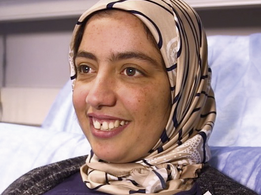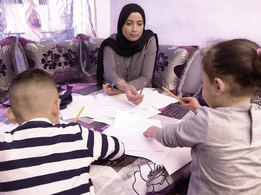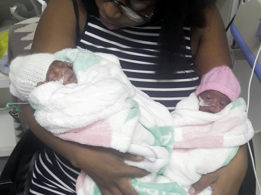Khadija became pregnant with her first child at the age of 22, shortly after being diagnosed with CKD. Despite all warnings, she continued the pregnancy and had to begin dialysis three months after giving birth to her son. She remembers the support from Dr. Mora at the Fresenius Medical Care dialysis centre in Granollers near Barcelona when she became pregnant again five years later: “I thought Dr. Mora was going to be angry with me for putting my life and the life of my unborn child at risk again, but when I told him, he calmed me down, supported me and gave me the strength to continue.”
Dr. Mora explains: “For patients like Khadija there are many concerns, for instance, the possibility of the pregnancy triggering health complications or special measures that they need to follow. Khadija’s weekly dialysis sessions were increased from three to six, paying special attention to liquid control and her blood pressure.” He also explains how doctor-patient communication and therapy are two key aspects to avoiding complications: “From the very first moment Khadija understood that she had to follow a set of medical instructions, slightly different from her usual ones, such as daily dialysis. She was eager to collaborate and knew that it was for the sake of both herself and her unborn child. She collaborated until the end, which resulted in a successful pregnancy and birth.”


